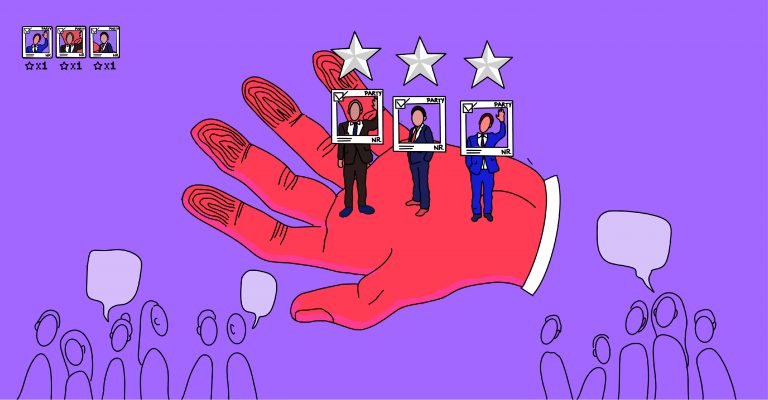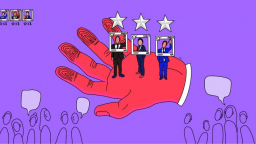
Kosovo's Roma, Ashkali and Egyptians need real change
The Constitution of Kosovo guarantees seats in the Assembly of Kosovo for Roma, Ashkali and Egyptians, however this fact has not provided a real voice for these communities. Roma, Ashkali and Egyptians in Kosovo continue to face social differences, surrounded by poverty and unemployment , an issue also highlighted by the European Commission 2020 Progress Report on Kosovo. Low participation in education is a real challenge for the overall inclusion of these communities in society. The latest UNICEF Multiple Indicator Survey revealed a significant gap in education participation among children from these communities compared to the general population.
The COVID-19 pandemic has presented other barriers to education, and it is understood that the current situation only exacerbates the wild cycle of poverty in which these communities find themselves. By way of illustration, almost one third of the officially documented Roma, Ashkali, and Egyptians in Kosovo are enrolled in some form of social assistance scheme, compared to seventeen percent of the general population. However, since its inception, the Kosovo Assembly has always been present with representatives from the Roma, Ashkali and Egyptian communities. The Constitution of Kosovo guarantees at least one deputy from each of these communities and an additional seat for whichever community receives the most votes. The constitution further guarantees that non-majority ethnic communities are offered not only participation but power, as deputies holding seats reserved in the Assembly are able to stop any change of the Constitution by refusing their support. Positions within the Government of Kosovo are also provided for non-majority ethnic communities, including positions such as ministers, deputy ministers and even deputy prime ministers. It is a level of political representation not enjoyed by Roma communities. In many parts of Central and Eastern Europe, Roma make up a significant portion of the population, but are largely absent from local and national political decision-making. Meanwhile, 'Roma in Europe' - an umbrella term covering a wide range of ethnicities - is regularly described as one of the most politically denied ethnic groups on the European continent today.
However, by non-majority citizens of Kosovo, the seats in the Assembly of Kosovo are seen as 'pseudo-democracy', which serve only as a political decoration and offer no real opportunity to influence politics. There are dozens of testimonies from appointed people in important and influential positions, including positions such as that of Deputy Minister or Advisor to the Prime Minister, which demonstrates that these representatives, even if they wished to contribute, were not given space, time or evaluation. Political Impact of marginalized ethnic communities has become useless, while the responsibility placed on them is equal. Who would have thought that a vote by a representative of the Ashkali community would determine the fate of a Kosovo government, as was the case with Mr. Etem Arifi and the outgoing government of Hoti ?!
Poverty and underestimation also significantly affect the direction that political representatives from these communities take. This often limits their influence to small roles and demands for personal gain for themselves or a close group of individuals around them, rather than representing the interests of their constituencies. However, by citizens not -most of Kosovo, the seats in the Assembly of Kosovo are seen as 'pseudo-democracy', which serve only as a political decoration and offer no real opportunity to influence politics. There are dozens of testimonies from people appointed to important positions and influential positions, such as that of Deputy Minister or Advisor to the Prime Minister, which demonstrates that these representatives, even if they wanted to contribute, were not given space, time or appreciation. The political influence of marginalized ethnic communities has become useless, while the responsibility placed on them is equal. Who would have thought that a vote by a representative of the Ashkali community would determine the fate of a Kosovo government, as was the case with Mr. Etem Arifi and the outgoing government of Hoti?!
Poverty and underestimation also significantly affect the direction that political representatives from these communities take. This often limits their influence to small roles and demands for personal gain for themselves or a close group of individuals around them, rather than representing the interests of their constituencies.
What are the chances that one (or all) of the nine political parties and citizens' initiatives running for the four reserved seats in the Kosovo Assembly for Roma, Ashkali and Egyptians, once elected, will relinquish political influence for small gain? personal - for a position of deputy minister, advisor in a ministry, or for some tenders given to friends and relatives? When talking about the democratic process, lack of information and poverty also means that these communities in Kosovo are often vulnerable to electoral abuses, including vote buying and even outright fraud. For many voters, their voice risks being banned or manipulated, sometimes through fear and violence. There have recently been some allegations that the Srpska List is trying to influence the election of MPs to the non-majority community. Kosovo's non-Serb ethnicity in order to increase their parliamentary power. However, what has been negligent in this discussion is that the political parties representing the Roma, Ashkali and Egyptian communities have always been manipulated by the main parties on issues that have never served the interests of these communities, and even less those of society in This is why members of these communities in Kosovo have little or no expectation that the political parties they represent will bring about the change that is hoped for.
Kosovo's Roma, Ashkali and Egyptians need real change.
The Constitution of Kosovo guarantees seats in the Assembly of Kosovo for Roma, Ashkali and Egyptians, however this fact has not provided a real voice for these communities. Roma, Ashkali and Egyptians in Kosovo continue to face social differences, surrounded by poverty and unemployment , an issue also highlighted by the European Commission 2020 Progress Report on Kosovo. Low participation in education is a real challenge for the overall inclusion of these communities in society. The latest UNICEF Multiple Indicator Survey revealed a significant gap in education participation among children from these communities compared to the general population. The COVID-19 pandemic has presented other barriers to education, and it is understood that the current situation is only strengthens the wild cycle of poverty in which these communities find themselves. By way of illustration, almost one third of the officially documented Roma, Ashkali, and Egyptians in Kosovo are enrolled in some form of social assistance scheme, compared to seventeen percent of the general population. However, since its inception, the Kosovo Assembly has always been present with representatives from the Roma, Ashkali and Egyptian communities. The Constitution of Kosovo guarantees at least one deputy from each of these communities and an additional seat for whichever community receives the most votes. The constitution further guarantees that non-majority ethnic communities are offered not only participation but power, as deputies holding seats reserved in the Assembly are able to stop any change of the Constitution by refusing their support. Positions within the Government of Kosovo are also provided for non-majority ethnic communities, including positions such as ministers, deputy ministers and even deputy prime ministers. It is a level of political representation not enjoyed by Roma communities. In many parts of Central and Eastern Europe, Roma make up a significant portion of the population, but are largely absent from local and national political decision-making. Meanwhile, 'Roma in Europe' - an umbrella term covering a wide range of ethnicities - is regularly described as one of the most politically denied ethnic groups on the European continent today. However, by Kosovo's non-majority citizens, seats in the Assembly of Kosovo are seen as 'pseudo-democracies', which serve only as a political decoration and offer no real opportunity to influence politics. There are dozens of testimonies from people appointed to important and influential positions, including positions such as that of the Deputy Minister or Advisor to the Prime Minister, which demonstrates that these representatives, even if they would like to contribute, were not given space, time or evaluation.
The political influence of marginalized ethnic communities has become useless, while the responsibility placed on them is equal. Who would have thought that a vote by a representative of the Ashkali community would determine the fate of a Kosovo government, as was the case with Mr. Etem Arifi and the outgoing government of Hoti ?!
Poverty and underestimation also significantly affect the direction that political representatives from these communities take. This often limits their influence to small roles and demands for personal gain for themselves or a close group of individuals around them, rather than representing the interests of their constituencies.
What are the chances that one (or all) of the nine political parties and citizens' initiatives running for the four reserved seats in the Kosovo Assembly for Roma, Ashkali and Egyptians, once elected, will relinquish political influence for small gain? personal - for a position of deputy minister, advisor in a ministry, or for some tenders given to friends and relatives? When talking about the democratic process, lack of information and poverty also means that these communities in Kosovo are often vulnerable to electoral abuses, including vote buying and even outright fraud. For many voters, their voice risks being banned or manipulated, sometimes through fear and violence. There have recently been some allegations that the Srpska List is trying to influence the election of MPs to the non-majority community. Kosovo's non-Serb ethnicity in order to increase their parliamentary power. However, what has been negligent in this discussion is that the political parties representing the Roma, Ashkali and Egyptian communities have always been manipulated by the main parties on issues that have never served the interests of these communities, and even less those of society in This is why members of these communities in Kosovo have little or no expectation that the political parties they represent will bring about the change that is hoped for.
Politics affects the lives and well-being of all, but the consequences of failure are felt more by communities that are more marginalized. This is why political participation is vital - so that people, especially those most vulnerable, have a voice in public affairs and influence policy-making in a way that responds to their needs. There are hundreds Roma, Ashkali and Egyptian candidates running for only four seats in the Kosovo Assembly, a strange phenomenon in itself. Nevertheless, each of these candidates must highlight the real needs in their constituencies, as well as of society at large. Representatives of these communities must have objectives beyond personal interests, to understand that a seat in the Assembly of Kosovo it is not simply a well-paid position and prove that political participation is the key to overall involvement. Only in this way can the message be sent to the Balkans and Europe beyond, that for one more voice, it is worth fighting for!
Link: https://kallxo.com/gjate/romet-ashkalinjte-dhe-egjiptasit-e-kosoves-kane-nevoje-per-ndryshime-te-verteta/?fbclid=IwAR137wpeidUcG-kNDiRERfn0_6u6f1BYs6k3r9KqE8SNU3DLMGY6qXjKB9I
